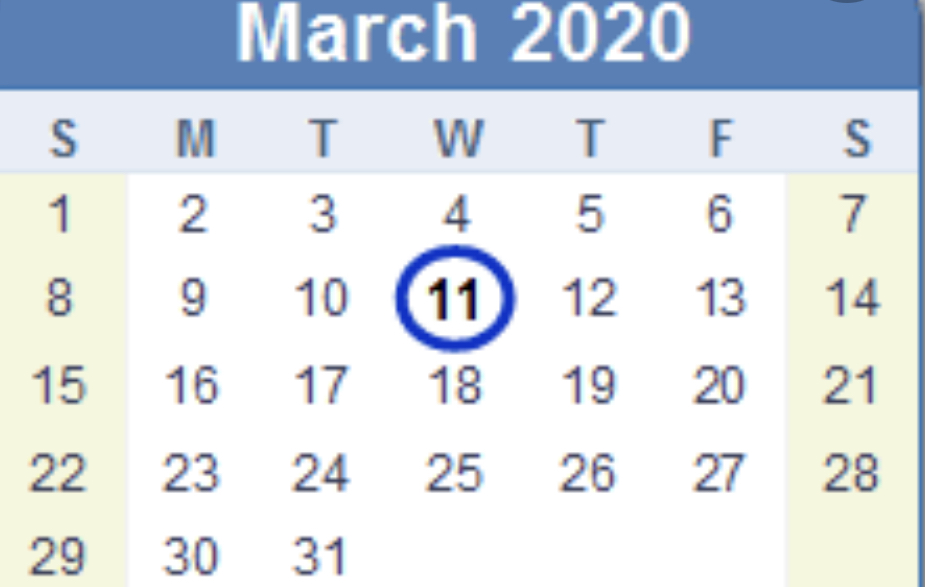
Last night, in the early Thursday evening of March 11, 2021, I devoted my weekly show “Today In Leadership History” (seen on Facebook Live) to a recounting of major events a year ago on the same day.
On that one day the World Health Organization defined coronavirus as a pandemic; POTUS 45 closed travel from Europe; the NBA suspended its season; Tom and Rita Hanks disclosed from Australia that they had the illness; the US stock market plunged; and at the end of the Big Ten basketball tournament’s first game, the public address announcer asked for fans to leave the building immediately. 3-11 is generally regarded as a key day marking the start of coronavirus as a pandemic affecting Americans as well as people across the world—who knows, maybe 3-11 will take on the aura of 9-11.
In my show I offered eight points that I regard as significant in looking back at the year-long experience. This blog entry marks the first explanation of one of the eight points. The rest will follow on a daily basis. I’ll conclude the eight-part series on March 20. Thank you in advance for reading.
Point One of Eight: From The Pandemic And The Turning Of The Earth Since 3-11-2020
People as individuals need each other desperately, while people in groups can’t stand those in other groups.
I know, it’s provocative and perhaps off-putting, a smidge over-the-top. Hear me out. My point is that we’ve benefited from the pandemic in valuing ourselves as individual people with a limited time on earth. In some cases, it’s taken the horror of death to drive home the point. Simultaneously, we’ve seen a rise in hostility between people who have defined and separated themselves variously into groups. The patience shown by people in one group has thinned in relationship to other groups.
Driven away from others and narrowed down to our essential few, each person as an individual has come to realize how vital wider contact truly is. To be with and among others—family, friends, neighbors, co-workers, classmates, and so on—is essential to life. Sure, we can live day-to-day in small or single numbers. To savor life and to be fully alive, however, we must have other people.
We also need the physical closeness of other people. Zoom isn’t the equal; GoogleMeet and Skype and Webex don’t fill the void. As individuals, we have people in our lives who need to be near and with us, and we them. This connectedness helps make a better person. Individuality and personness (if you will) have never been so clearly linked to the contributions from surrounding people, to the nurturing others give to one and one gives to others.
Conversely, at the opposing end of the spectrum, after we form into groups we begin to move quickly into us/them and we/they modes. So much of the social media, digital algorithms, and artificial intelligence around us drives the suspicion and hostility of grouping. The larger and more sprawling the group, the more likely the division between it and other groups.
A strange pandemic dynamic has been the coupling of the two points in the same personal space of home. Even more than that, they have intertwined on screens. The screen that has enabled you as a person to function in isolation and to withstand isolation has also exposed you to the friction of groups slamming into one another and, perhaps if we’re honest, to participate in the process, too. Using the screen as an individual brings a reminder of how important the person is to whom you are talking and looking and listening. Yet in a different moment, using the same screen as member of a group has left you shocked, dismayed, and angered by the deeds, words, and beliefs of other groups.
The co-occupation of individual and group has continued for months and months. The span of time has become the space of an era. The result is a hardening of practices, habits, and assumptions that will not easily or smoothly disappear. For the individual as a person, that is good news. For the person gathered in a group, that is potentially troubling.
See you tomorrow for Point Two, and thanks again for reading.
All the best, Dan







